
How Machine-Driven Decisions Will Affect IT
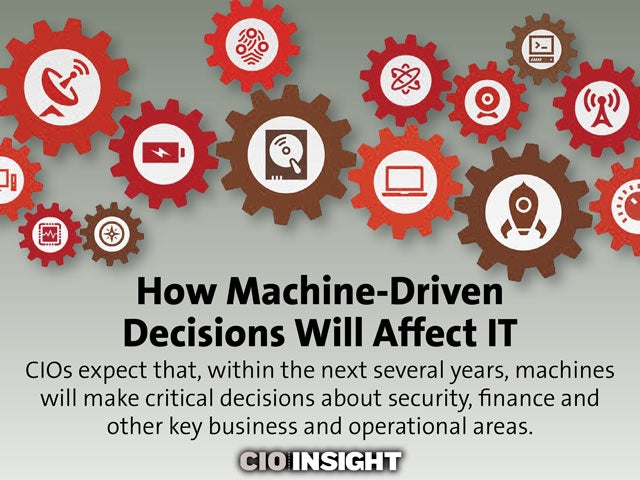 How Machine-Driven Decisions Will Affect IT
How Machine-Driven Decisions Will Affect IT
CIOs expect that, within the next several years, machines will make critical decisions about security, finance and other key business and operational areas.
 Immense Interest
Immense Interest
89% of the CIOs surveyed said their organization is using machine learning in some way—in business areas, as a pilot or in a research or planning phase.
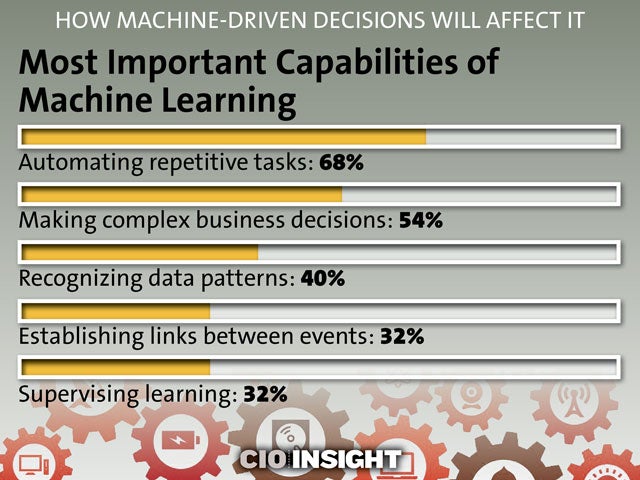 Most Important Capabilities of Machine Learning
Most Important Capabilities of Machine Learning
Automating repetitive tasks: 68%,
Making complex business decisions: 54%,
Recognizing data patterns: 40%,
Establishing links between events: 32%,
Supervising learning: 32%
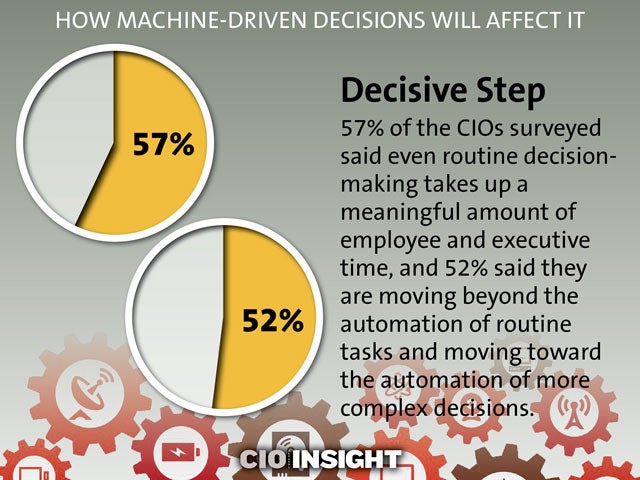 Decisive Step
Decisive Step
57% of the CIOs surveyed said even routine decision-making takes up a meaningful amount of employee and executive time, and 52% said they are moving beyond the automation of routine tasks and moving toward the automation of more complex decisions.
 Spot On
Spot On
87% said machine learning provides “substantial” or “transformative” value in coming up with accurate decisions.
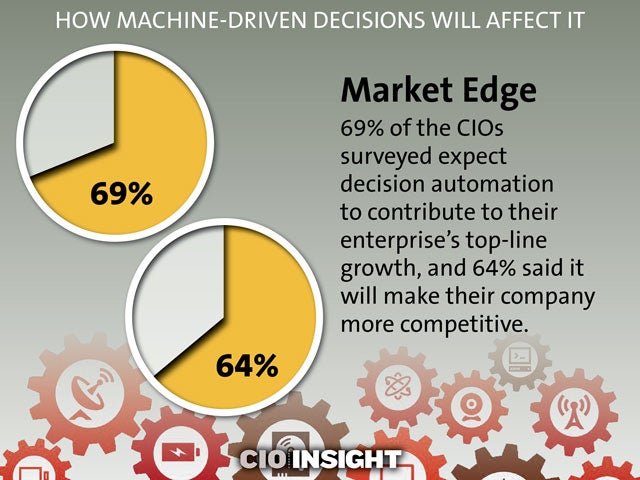 Market Edge
Market Edge
69% of the CIOs surveyed expect decision automation to contribute to their enterprise’s top-line growth, and 64% said it will make their company more competitive.
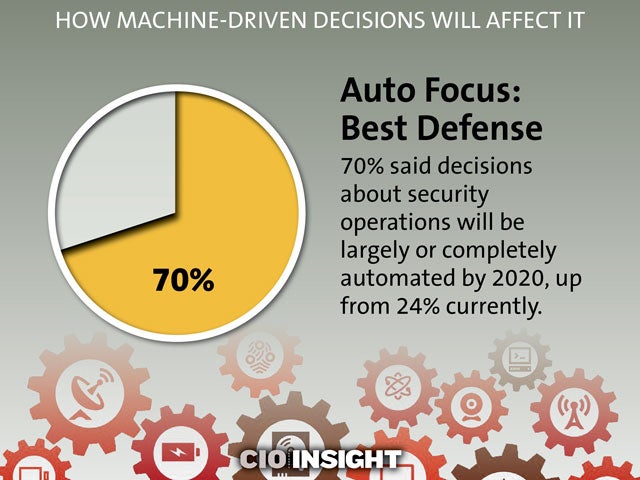 Auto Focus: Best Defense
Auto Focus: Best Defense
70% said decisions about security operations will be largely or completely automated by 2020, up from 24% currently.
 Auto Focus: Consumer-Minded
Auto Focus: Consumer-Minded
77% said decisions about customer management will be largely or completely automated—or at least automated in a way that will require some human intervention—by 2020, compared to 69% today.
 Auto Focus: Fiscally Sound
Auto Focus: Fiscally Sound
77% said decisions about finance will be largely or completely automated—or at least automated in a way that will require some human intervention—by 2020, up from 52% currently.
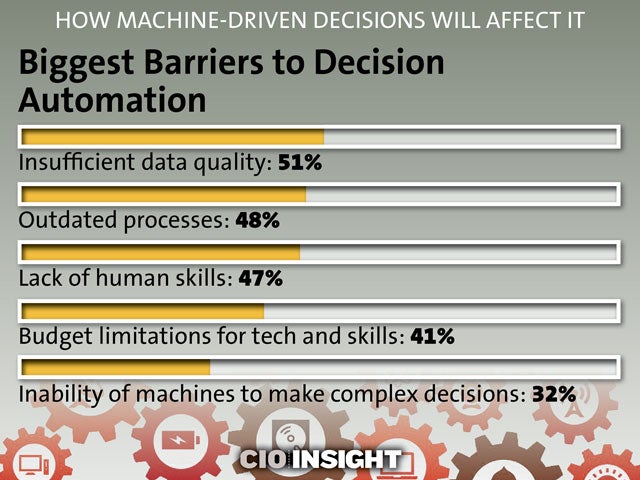 Biggest Barriers to Decision Automation
Biggest Barriers to Decision Automation
Insufficient data quality: 51%,
Outdated processes: 48%,
Lack of human skills: 47%,
Budget limitations for tech and skills: 41%,
Inability of machines to make complex decisions: 32%
 Under-Prepared
Under-Prepared
Just 16% of CIOs have established workforce size and role plans to accommodate machine learning, and only 36% have developed a roadmap for future process changes.